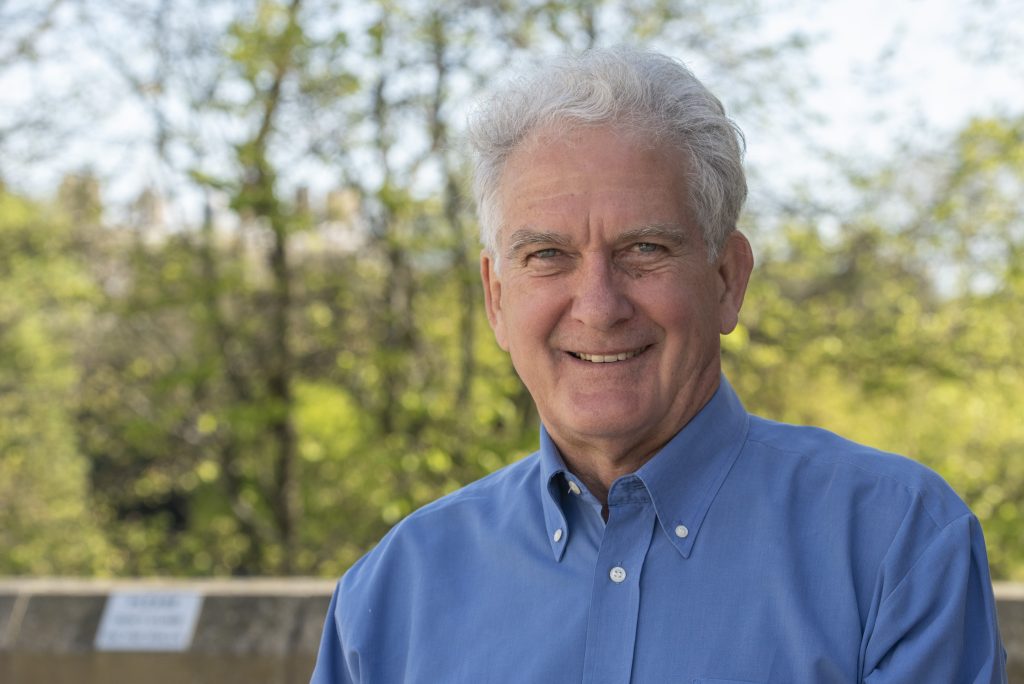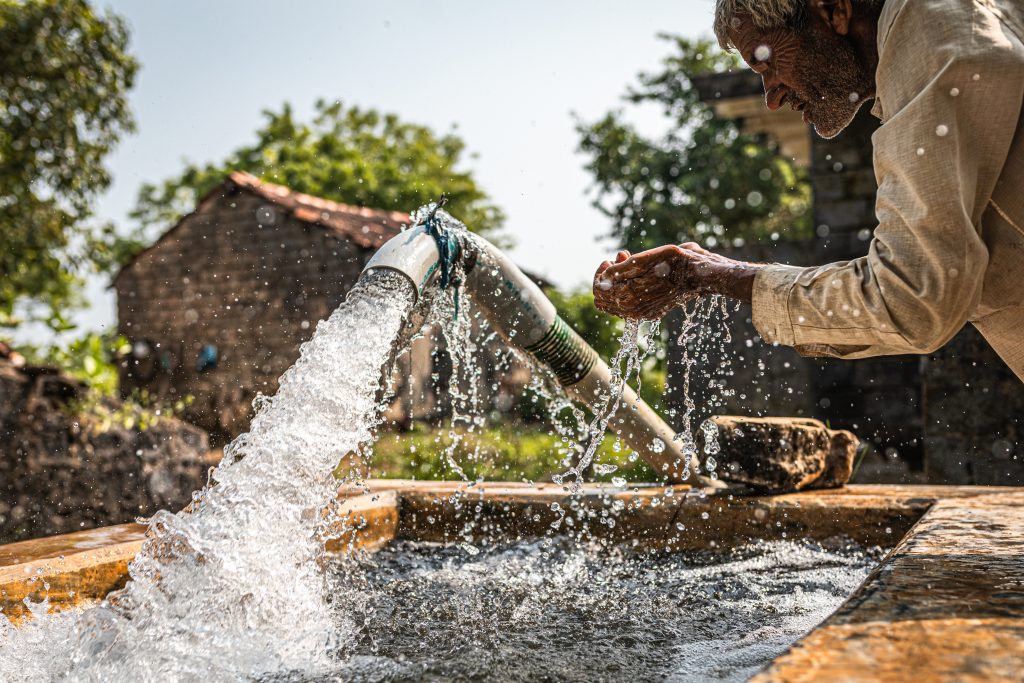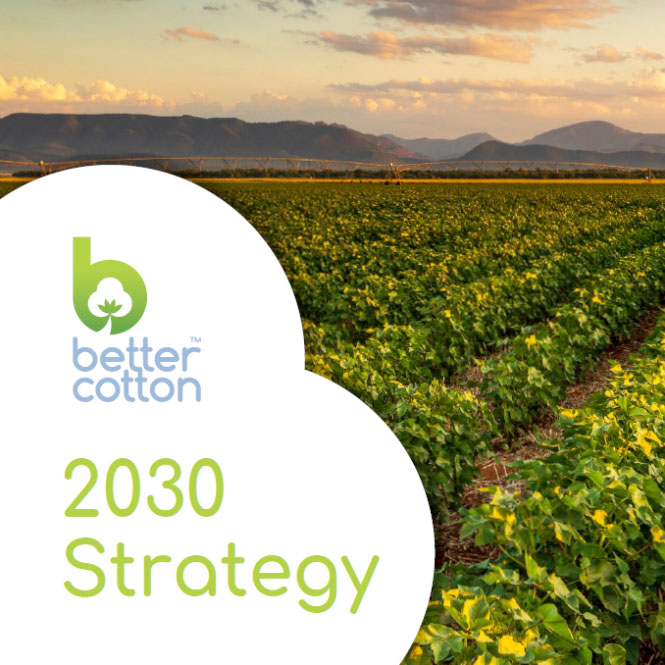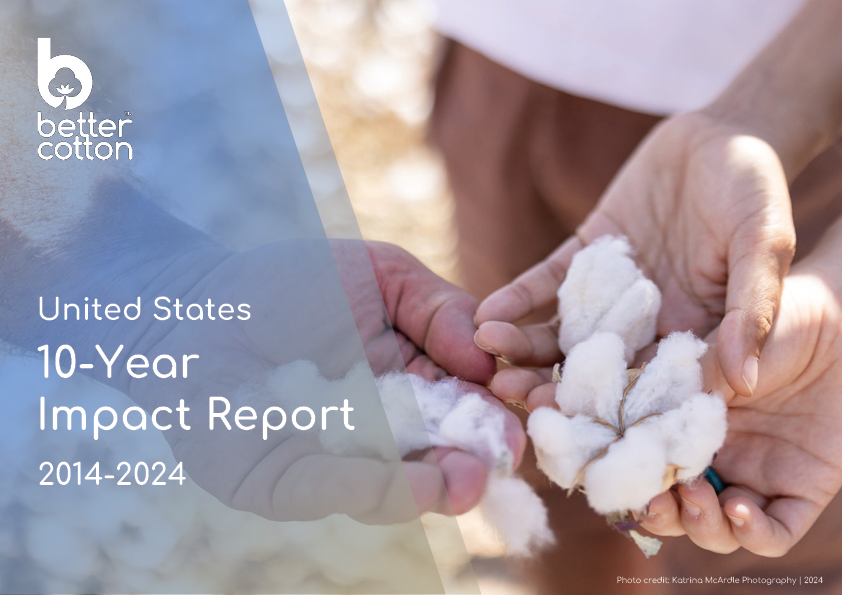- Who we are
- What we do
In just over 10 years we have become the world’s largest cotton sustainability programme. Our mission: to help cotton communities survive and thrive, while protecting and restoring the environment.
- Where we grow
Better Cotton is grown in 22 countries around the world and accounts for 22% of global cotton production. In the 2022-23 cotton season, 2.13 million licensed Better Cotton Farmers grew 5.47 million tonnes of Better Cotton.
- Our impact
- Membership
Today Better Cotton has more than 2,700 members, reflecting the breadth and diversity of the industry. Members of a global community that understands the mutual benefits of sustainable cotton farming. The moment you join, you become part of this too.
- Associate Membership
- Civil Society Membership
- Producer Organisation Membership
- Retailer and Brand Membership
- Supplier and Manufacturer Membership
- Find Members
- Member Monitoring
- Better Cotton Platform
- myBetterCotton
- Resources – Better Cotton Conference 2022
- Complaints
- Whistleblowing
- Safeguarding
- Get Involved in the Better Cotton Programme
- Thank you for contacting us
- Better Cotton’s Data Privacy Policy
- Log in
- Members’ Area
- Request for Proposals
- Better Cotton Cookie Policy
- Web Reference
- Measuring Cotton Consumption
- How to Implement the Chain of Custody Standard
- Resources – Better Cotton Conference 2023
- Certification Bodies Old
- Latest
- Sourcing
- Latest
The founding premise of Better Cotton is that a healthy sustainable future for cotton and the people that farm it is in the interests of everyone connected with it.
Let us help you find what you’re looking for
Results for {phrase} ({results_count} of {results_count_total})Displaying {results_count} results of {results_count_total}

At the inaugural Better Cotton Member Awards, presented during the Better Cotton Conference in June 2023, we presented the Outstanding Contribution Award to Mark Dent, Senior Advisor at Alliance for Water Stewardship (AWS), in recognition of his work on the revision of Better Cotton’s Principles and Criteria (P&C).
Mark was the AWS representative on the Natural Resources Working Group, one of the three key working groups, made up of subject experts, which helped to draft the revised P&C. He provided guidance and expertise on water-related issues, primarily those involving multiple stakeholders.
In celebration of World Water Week 2023, we sat down with Mark to hear about the revision, AWS’ work, and the vital importance of water stewardship in cotton farming.
Could you give us an introduction to the Alliance for Water Stewardship (AWS) and what it does?
The Alliance for Water Stewardship (AWS) is a global membership organisation comprising private sector, public sector, and civil society organisations (CSOs). Our members contribute to the sustainability of local water resources through the International Water Stewardship Standard, our framework for the sustainable use of water which drives, recognises and rewards good water stewardship performance.
Our vision is a water-secure world that enables people, cultures, business and nature to prosper, now and in the future. To achieve this vision, our mission is to ignite and nurture global and local leadership in credible water stewardship that recognises and secures the social, cultural, environmental and economic value of freshwater.
How was your experience of contributing to the revision of Better Cotton’s Principles and Criteria?
I am grateful to AWS for entrusting me to be their representative in this work. It was an extraordinary experience to witness first-hand the degree to which the Better Cotton Standard Revision Project’s leadership created the careful balance between moving forward with a complex and tight agenda and creating the appropriate space and tone for innovative exploration of the needs of all stakeholders.
What role does water stewardship have to play in the sustainable production of cotton?
Water is a finite common resource that has no substitute, and therefore needs to be shared between all stakeholders in a way that ensures ‘some, for all, forever’. Our standard presents a framework for cotton farms and other water-using sites to respond to local challenges and work towards sustainable, multi-stakeholder use of water, both within the fence-line of their farms and beyond, into the wider catchment. It focuses on five outcomes which are of central importance to sustainable cotton production. These are good water governance; sustainable water balance; good quality water status; healthy important water-related areas; and safe water, sanitation and hygiene for all.

How will the revised P&C drive impact in improving water stewardship?
The sheer scale of Better Cotton’s reach, globally, means that essential water steward-like skills, knowledge and actions are being propagated on a scale that makes a significant contribution to the vision & mission of the Alliance for Water Stewardship, described earlier.
How important is it to ensure that discussions around water stewardship are inclusive of all stakeholders?
It is of paramount importance, for many reasons. I will focus on three:
- Water is hyper-connected to all living systems and so one stakeholder’s solution is very often the source of another stakeholder’s problem.
- The sheer scale of water-related challenges demands that they be addressed collectively to capitalise on economies.
- For proposed water-related options to gain social acceptance, they need to emerge from inclusive dialogue that simultaneously helps to inform the stakeholders into creating socially robust (aka actionable) knowledge, which in turn results in wise and timely implementation.
Such inclusive engagements also generate ‘response-able’ behaviours in which stakeholders sense impending challenges early enough to co-generate and practice wise, collective, co-ordinated responses which can significantly lessen the impact of unavoidable ‘shocks’ to the system.
Finally, inclusive stakeholder engagement addresses the phenomenon of bounded rationality which states that a person cannot be rational beyond the bounds of their cognitive or knowledge space. So, when the consequences of our ‘rational’ actions in relation to water manifest beyond our knowledge space, they could very well create highly irrational consequences. We need other stakeholders to reveal these potential consequences and thus prevent us from creating unsustainable water-related systems. Let me give you an example, I consider myself to be a rational person, BUT if I was placed in a position where I had to do brain surgery, I would inevitably perform some highly irrational actions that would harm the patient.
What are the most important steps the cotton sector must take to improve water use?
The ability to think and act in terms of systems is key to ensuring that cotton sector stakeholders improve their water use by responding appropriately to their local context. At the same time, this system thinking approach equips cotton producers to adhere to most of the Principles & Criteria in the Better Cotton Standard. So, training in practical, multi-stakeholder, context-related systems thinking is essential.
- To read more about the Alliance for Water Stewardship (AWS), click here.
- AWS is currently undertaking a review and revision of the AWS Standard V2.0. For more information click here.


